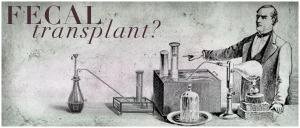The study will provide new insights on mechanics of fecal microbiota transplantation with patients being treated for a C. diff. infection.
uBiome and OpenBiome Partner for Microbiome Study in FMT Patients
Study will provide new insights on mechanics of fecal microbiota transplantation in patients treated for a C. difficile infection.
uBiome and OpenBiome announced a new partnership to study the microbiome of patients undergoing fecal microbiota transplantation (FMT) as a treatment for Clostridium difficile infections (C. diff).
Any patient undergoing clinical FMT treatment can request their complimentary mail-order microbiome testing kit at http://ubiome.com/pages/fmt. The kit allows them to swab a sample of their microbiome, which they send back to uBiome for analysis and sequencing. uBiome will use the collected data to conduct a study of FMT’s impact on the body’s microbiota. All study participants will also receive a detailed report on their personal microbiome.
“Because we will be looking at patients before, during, and after FMT we will be able to learn about how the microbiota adjusts to the treatment,” adds OpenBiome Co-Founder and President Dr. Mark Smith. “This has the potential to not only shed light on C. diff, but also open the door to using FMT with patients suffering other conditions.”
C. diff infections can occur when there is a severe imbalance of gut microbiota. Because of this imbalance, the bacterium thrives and causes extreme gastrointestinal distress.
This study will serve to increase awareness and understanding of how FMT affects the human microbiome, which could increase its acceptance in the medical community as a way to treat a potential variety of gastrointestinal conditions.
About uBiome:
uBiome (ubiome.com) sequences the microbiome for citizen scientists, researchers, and clinicians, using microbial genomics to help patients benefit from new discoveries in scientific research. uBiome conducts research studies on the microbiome and develops clinical diagnostics based on microbiome research.
About OpenBiome:
OpenBiome (openbiome.org) is a nonprofit stool bank dedicated to expanding safe access to fecal microbiota transplantation (FMT) therapies. Founded by a team of microbiologists, public health advocates, and concerned citizens, OpenBiome aims to significantly reduce the practical barriers for clinicians providing FMTs, while connecting scientists across studies and disciplines.
To read the article in its entirety please click on the following link:
http://www.prweb.com/releases/2015/07/prweb12820941.htm
June 2015


